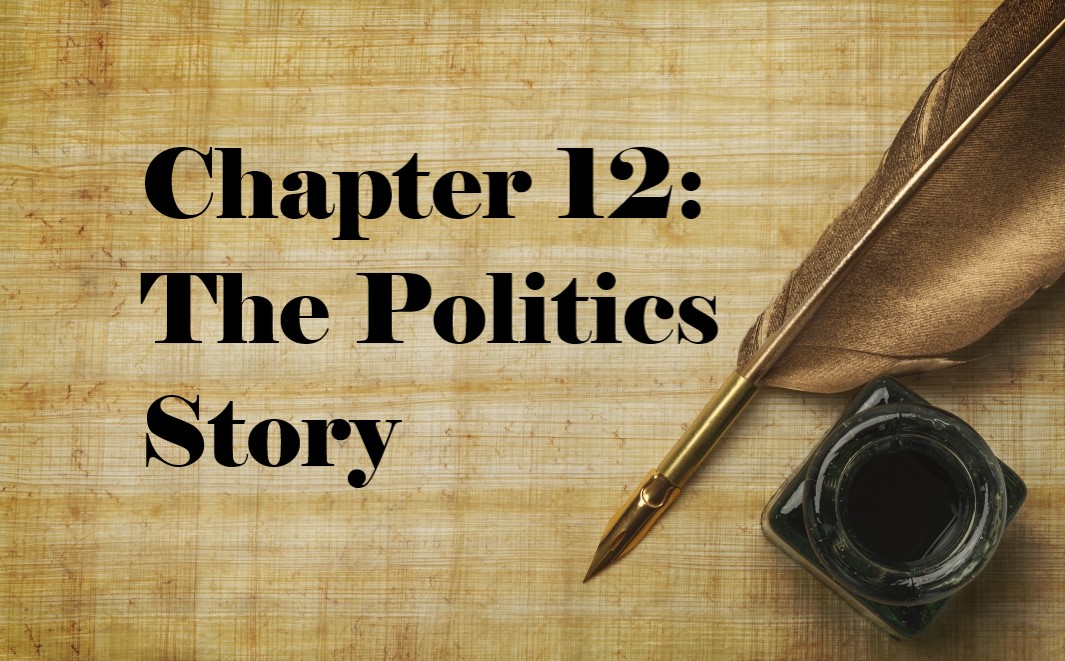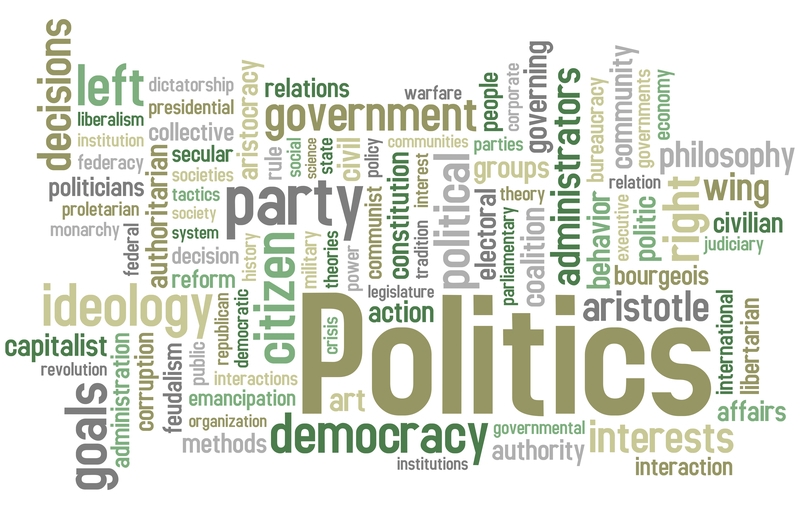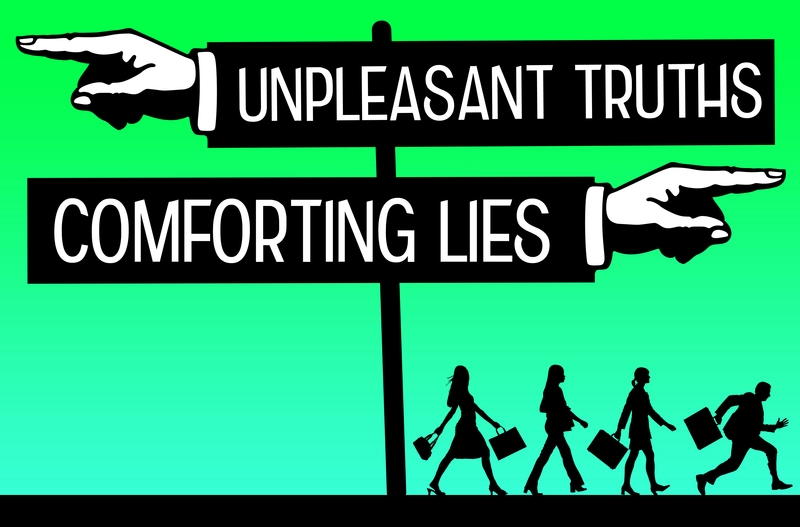Podcast: Play in new window | Download | Embed
Subscribe: RSS

ReWriting the Human Story: How Our Story Determines Our Future
an alternative thought experiment by Nikola Danaylov
Chapter 12: The Politics Story
Never has our future been more unpredictable, never have we depended so much on political forces that cannot be trusted to follow the rules of common sense and self-interest – forces that look like sheer insanity, if judged by the standards of other centuries. Hannah Arendt, The Origins of Totalitarianism
Power over the rules is real power. That’s why lobbyists congregate when Congress writes laws, and why the Supreme Court, which interprets and delineates the Constitution — the rules for writing the rules — has even more power than Congress. If you want to understand the deepest malfunctions of systems, pay attention to the rules and to who has power over them. Donella H. Meadows, Thinking in Systems
Politics is the story of rules. The rules of how we live and do things together. It frames and regulates the relationships among people. It is the foundation on which we transcend being individuals and become a community, a tribe, a nation, or a civilization. It is what allows humanity to be more than the sum of its parts. That is why we might get all other stories right but if we get politics wrong we are unlikely to survive as a civilization, perhaps even as a species. And sooner or later all stories become political.
Take technology. Technology drives change. And, by definition, change turns the world upside down. So it takes a blue-blood nobleman and turns him into a pauper. It takes a king and makes him a ceremonial figurehead with no real power. It takes a shepherd and makes him a laborer, a member of the middle-class, or, occasionally, a capitalist. And so, in the end, technology, as a bringer of change, is about politics.
This is no revelation. Every time we’ve had technological change we’ve had both social and political change. Karl Marx was one among several who pointed out that our socio-economic system, and therefore our politics, is derived from the mode of production. That was the case with the Industrial Revolution when we replaced natural with artificial power. And it is the case with the AI Revolution when we replace human with artificial intelligence.
So if you think that a few dozen men [they are almost always men and almost always white.], controlling more tech, more data, and more wealth, than any government ever has, is merely a technological change, think again. It is profoundly political because it ultimately is about the distribution, or rather the concentration, of power. More power than we have ever had in the history of the world. In fewer and fewer hands. And power is always political. As Elon Musk said at the Asilomar Conference on Beneficial AI:
Freedom consists of the distribution of power and despotism in its concentration.
And people have not failed to notice that this trend has coincided with an exponential explosion of technology. Therefore technology on its own doesn’t necessarily have a positive effect on democracy or the standard of living. It is the rules within which technology operates that specify how we spread the surplus and the benefits that ultimately enhance the concentration of power, or diminish it. And politics sets the rules.
Peter Diamandis often talks about the impending arrival of the world’s first trillionaires. And I have no doubt he is correct. But I fail to see this as a necessarily good thing for many others than those trillionaires themselves. In fact, it is a clear sign of the further concentration of power Elon Musk was talking about. But there is another, more important trend happening at the same time.
In the past capital needed labor in order to perpetuate and multiply itself. Just as much as labor needed capital in order to earn wages. This long-standing mutual co-dependency gave bargaining power to labor and allowed for an equitable distribution of the consequently produced economic surplus. Which in turn gave us the most prosperous period of capitalism during which both capital and labor were benefiting from the above arrangement.
Today, a new era is beginning. An era, when with the rise of robotic automation and AI, the super-rich can control not only capital but also labor. Thus human labor is no longer necessarily needed by capital, at least not at a price that would pay for AI and robots. But that price itself is constantly shrinking, while the cost of living is rising. So the incentives are clear. And the trends are not likely to change. To the point when trillionaires can literally build private armies of robot laborers and soldiers to do their bidding.
Change doesn’t get more political than this.
We are in a race between technology and politics. And technology is winning. By a long shot. The reason is that currently, the story of technology is way more popular, easier to understand, more viral, and visible in its impact and importance.
So what do we do? Where do we begin?
We begin by rewriting the story of politics, what it is, how it works, what are its benefits, and where it can take us. We acknowledge that technology is not enough. That the human story is as much about politics as it is about science, technology, or economics. Always has been. That, for example, the politics of the future is technology just as much as technology is the future of politics.
More importantly, we may get the technology right but if we get the politics wrong, then, we are all doomed. The sooner we wake up to that basic truth the better chance we have. Because if the current trends persist the people will likely rise up in revolt long before the machines do. They already have. Only next time the revolt may not be happening at the voting booth.
That is why my undergraduate textbook defined politics as “who gets what, from whom, under what conditions, and for what purpose.”
In other words, politics is the story of the rules that create and regulate (or destroy) civilization. The story about how even the losers win so we are all better off. In some ways it’s like soccer – we have to accept the rules in order to play together. If we manage to do that in the context of exponential technology the benefits can be so profound, they can border utopia. Alternatively, if we do not, the costs can usher in dystopia.
Take the World Cup. We have a global competition among many participants with mutually exclusive goals. But as long as we all agree on the rules of the game we can reach an optimum outcome that is accepted by everyone. Now, this outcome is never going to be the best for everyone individually. It is, however, the best for all of us collectively. So Brazil may be very unhappy about losing to Germany. Just like all others who didn’t end up first. But we are all better off for playing the game together and that is impossible without rules. [That is why the first steps towards resolving any conflict include establishing a shared story about the rules. After we have this story conflict becomes resolvable and, in the long run, everyone benefits, including those who didn’t quite get what they wanted.]
This is what the story of politics could and should be about: designing the rules that produce win-win scenarios. Because in a world of powerful AI, genetic engineering, nanotechnology, 3D printing, and synthetic biology, win-lose outcomes push losers towards ruining the game, which is a lose-lose outcome for everyone. Humanity cannot survive such outcomes anymore. Our individual stories are too closely connected to both each other’s personal and collective stories. Our planet is facing too many existential challenges that demand “one for all and all for one” solutions. In other words, to ensure our future survival we can no longer ignore the fate of the losers. We have to shift from zero-sum win-lose to win-win stories. This is the proper story of politics because it is our ability to work together that sets us apart and has brought us where we are:
Evolution wisely knew that, by itself, analytical thinking wouldn’t get us far. Sure, it’s an ability that seems to set us apart from other species, but, as we know, what gave us the power to take over the world was something else altogether.
It turns out, our crowning glory isn’t critical thinking; it’s our ability to work well with others. Lisa Cron, Story or Die, Page 39

 Technology drives change. And, by definition, change turns the world upside down. So it takes a perfectly good blue-blood nobleman and turns him into a pauper. It takes a king and, at best, makes him a ceremonial figurehead with no real power. It takes a shepherd and makes him a laborer, hopefully a member of the middle-class or, occasionally, a capitalist. And so, in the end, technology, as a bringer of change, is about politics. Because, as my undegraduate textbook defined it, politics is about “who gets what, from whom, under what conditions, and for what purpose.”
Technology drives change. And, by definition, change turns the world upside down. So it takes a perfectly good blue-blood nobleman and turns him into a pauper. It takes a king and, at best, makes him a ceremonial figurehead with no real power. It takes a shepherd and makes him a laborer, hopefully a member of the middle-class or, occasionally, a capitalist. And so, in the end, technology, as a bringer of change, is about politics. Because, as my undegraduate textbook defined it, politics is about “who gets what, from whom, under what conditions, and for what purpose.”
